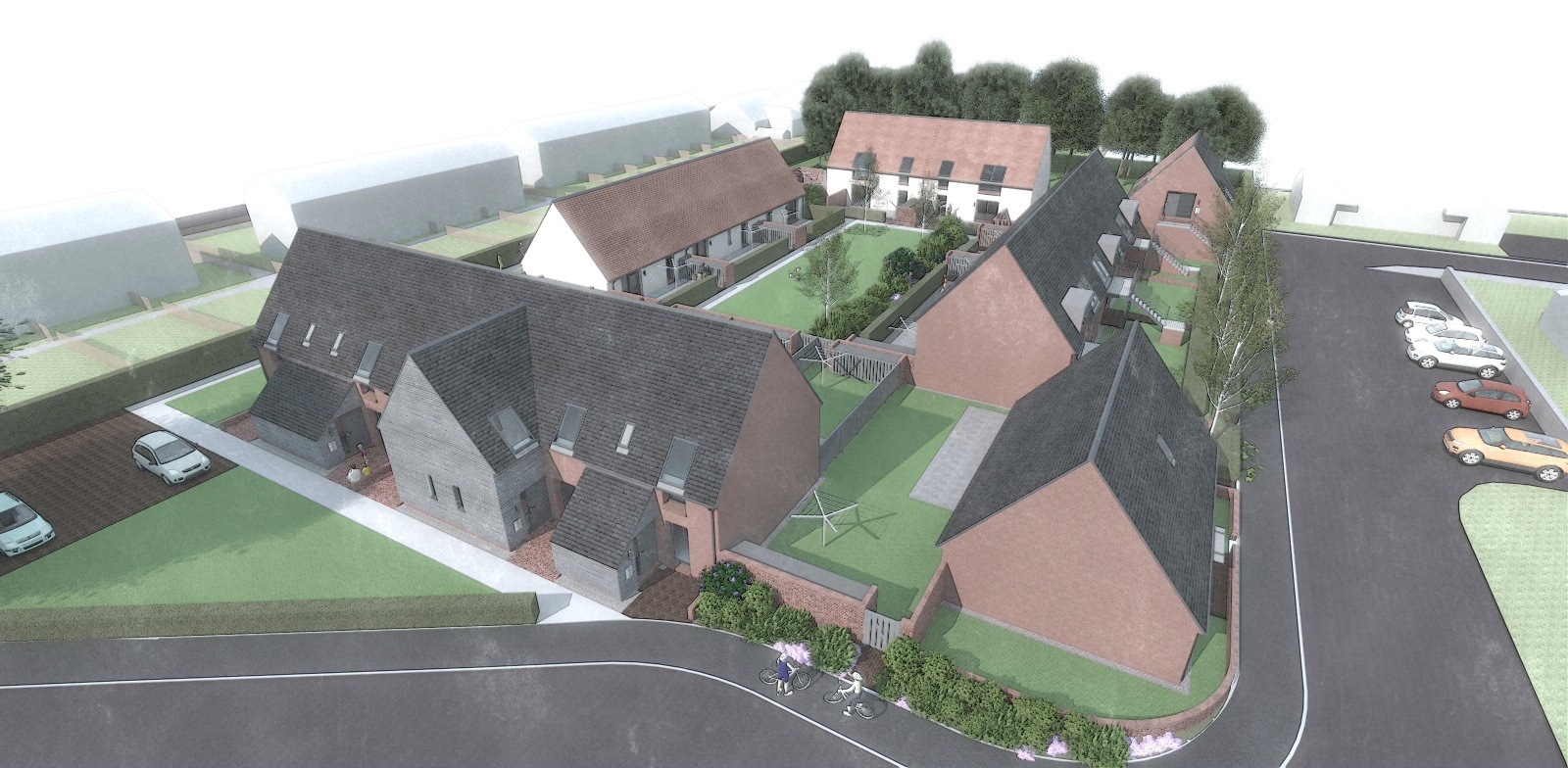New council homes planned for Edzell
Angus Council is to build around 20 new council houses in Edzell as part of its commitment to provide affordable homes for rent in rural communities as well as larger towns.

How the homes at Inglis Court will look
Plans have been submitted for a development that would replace the council-owned retirement unit at Inglis Court.
Over recent years, the unit has proved to be unpopular, out-dated and has attracted very little demand.
Angus Council’s communities convener, Cllr Mark Salmond, said: “We have seen a general trend for older people to be less inclined to move to sheltered or retirement housing simply because their care and support needs can now be met in their existing home.
“By contrast, there are a significant number of people who are in need of mainstream social affordable housing across Angus, including in Edzell.
“Our planned new development is designed to meet the current and future need of our citizens. We believe this will not only help people on low incomes to have better opportunities to access affordable social housing for rent, but it will importantly help the long-term sustainability of services in Edzell.”
The air-tight, highly energy efficient homes will take full advantage of solar power, helping to minimise fuel costs for tenants. In addition, fibre broadband will be installed directly to the premises ensuring good quality internet – an essential for home working and studying in the 21st Century.
The proposed housing mix of 1, 2 and 3 bedroom properties reflects current demand for social housing in Edzell. It will also provide much needed specialist accommodation in line with the council’s commitment to deliver wheelchair accessible and particular needs housing. The development will be supported by significant grant investment by the Scottish Government.
Angus Council leader, Cllr David Fairweather, said: “It is crucial that the council continues to invest in our rural centres, such as Edzell.
“Equally we must continue our drive to build high quality council housing for rent so we can meet the needs of people in our communities who have lower household incomes, or who have particular needs.”





















